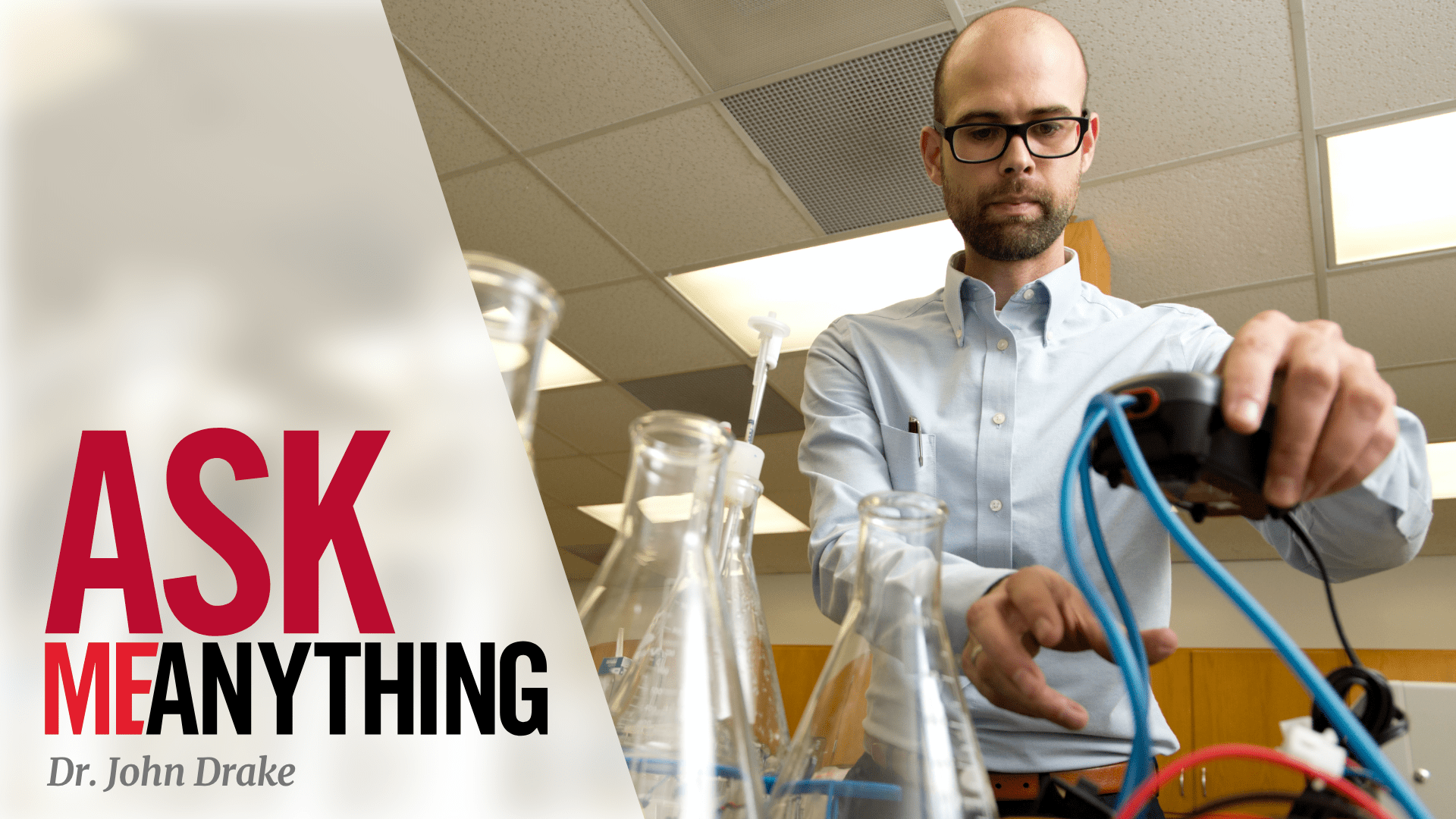May 13, 2020
Athens, Ga. – Distinguished Research Professor John Drake inaugurated the University of Georgia Alumni Association’s “Ask Me Anything” webinar series on the COVID-19 pandemic on May 7. In his presentation, “Can the course of the epidemic be predicted?” he provided updates and answered questions about the current patterns and potential trajectory of COVID-19 in Georgia and the U.S.
Drake, the associate dean for academic affairs in the Odum School of Ecology and director of the UGA Center for the Ecology of Infectious Diseases, was introduced by UGA Foundation Professor John L. Gittleman, dean of the Odum School, who also moderated the question and answer period that concluded the session. Gittleman explained that the multidisciplinary Center for the Ecology of Infectious Diseases, housed in the Odum School, is uniquely prepared to offer the predictive approaches needed to manage and protect against COVID-19.
Drake demonstrated some of the interactive tools available on the COVID-19 Portal, a project of the CEID’s Coronavirus Working Group. The group includes more than 30 researchers with expertise in data analysis, interpretation and visualization; geographic information systems; machine learning; computational statistics and dynamical modeling. The portal contains data, models and maps related to the pandemic that is updated daily and shared with decision-makers and researchers at institutions around the world.
Drake led the audience through the group’s model for Georgia that used cell phone data to explore the effects of social distancing measures to date, and project what is likely to happen if those measures are relaxed, maintained, or even increased.
“Scenario analyses allow us to test ideas about how to contain an outbreak and give policy makers data that can inform decision making by asking, what could happen? What might happen?” he said. “The models put numbers behind some of the most fundamental questions surrounding the outbreak—things like, how bad could this get, and how could we make it better?”
The group’s analysis showed that social distancing measures have likely saved more than 2,900 lives already, but projected that relaxing vigilance could result in as many as 38,000 additional cases and 1,500 additional deaths through June 7 cumulatively.
Drake said that lessons learned include that intervening early is critical and that social distancing saves lives.
“I firmly believe that we’ve slowed the rate of growth in infections, what’s commonly known as ‘bending the curve,’ but that we’re also nowhere close to the end of the pandemic,” he said.
The Coronavirus Working Group is currently focused on research that includes identifying the most effective response strategies and exploring how social distancing can be relaxed safely.
“I understand the massive economic devastation that lockdown causes, but also I believe that these economic costs pale in comparison to the costs of an uncontrolled outbreak,” Drake said. “Scientists, I believe, are rightly concerned about the possibility of a second wave of infections in the fall and winter, and we’re working to identify measures that could prevent or at the very least minimize a second wave.”
Drake and his colleagues are also focused on applying the knowledge gained from fighting COVID-19 to fighting future pandemics.
“The COVID-19 pandemic is actually the third major outbreak caused by a coronavirus in the past 18 years,” he said. “An outbreak of SARS occurred in 2002 in Asia and Toronto, and that was followed by an outbreak of MERS in the Middle East in 2012. This is to me a very troubling trend, and I believe the investments we make today in research can save lives and minimize disruption—during this pandemic, of course, but also in the future, whether it’s caused by a coronavirus, flu, or some other pathogen.”
The complete presentation is available online at https://www.youtube.com/watch?v=snJWjGZng7k&feature=youtu.be.
Ask Me Anything is an online interactive series of sessions featuring UGA faculty experts discussing the effects of the COVID-19 pandemic on their specific area of expertise and providing participants the opportunity to ask questions.
To register for the remaining webinars in the series, visit https://gail.uga.edu/events/aa/ask-me-anything-may-2020.

